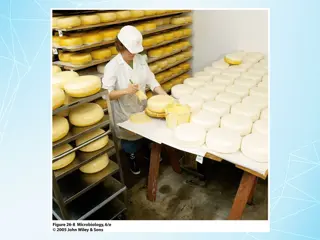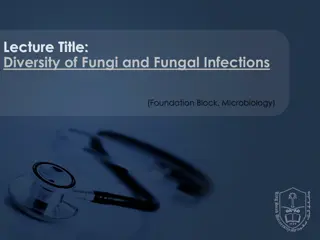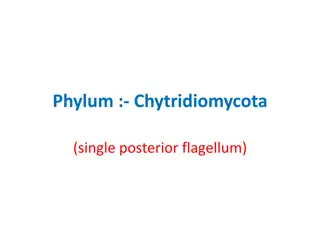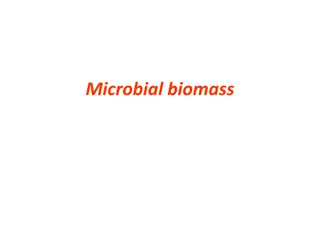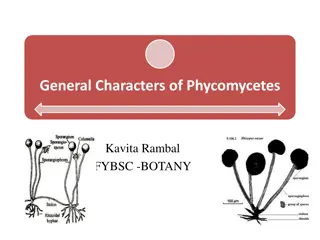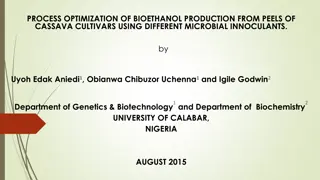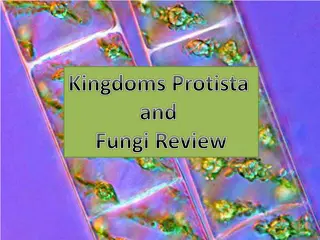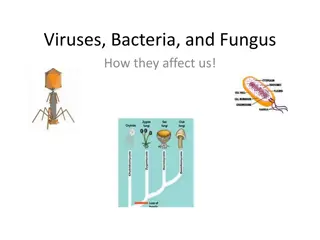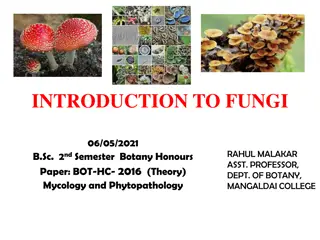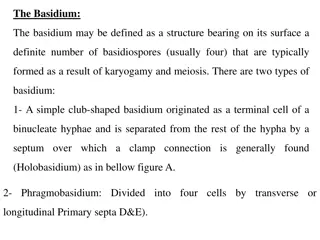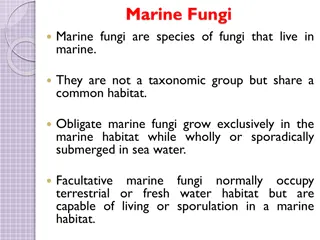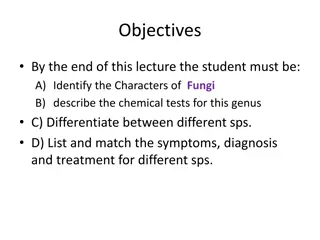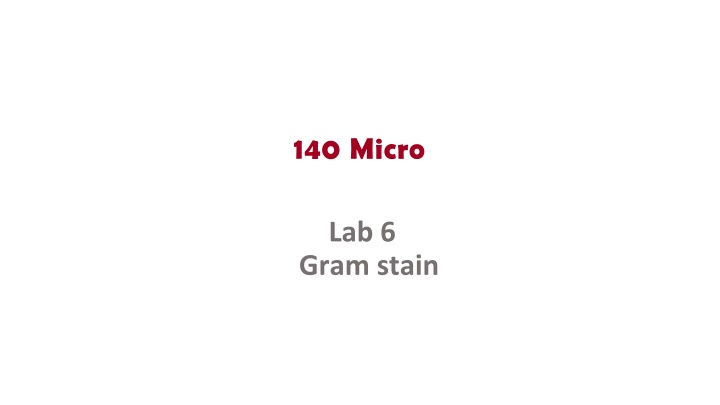
Saccharomyces: Genus of Fungi for Food Production
Saccharomyces is a genus of fungi known for its importance in food production, including species like Saccharomyces cerevisiae used in bread, wine, and beer making. This unicellular fungus plays a vital role in various industries and has unique cellular morphology. Explore more about Saccharomyces and its diverse species in this detailed overview.
Download Presentation

Please find below an Image/Link to download the presentation.
The content on the website is provided AS IS for your information and personal use only. It may not be sold, licensed, or shared on other websites without obtaining consent from the author. If you encounter any issues during the download, it is possible that the publisher has removed the file from their server.
You are allowed to download the files provided on this website for personal or commercial use, subject to the condition that they are used lawfully. All files are the property of their respective owners.
The content on the website is provided AS IS for your information and personal use only. It may not be sold, licensed, or shared on other websites without obtaining consent from the author.
E N D
Presentation Transcript
140 Micro Lab 6 Gram stain
Purpose/Goal of Gram Stain To recognize 1. The response (Gram+ve or Gram ve) 2. Shape 3. Arrangement
It is used to differentiate between gram-positive and gram-negative bacteria, which have distinct and consistent differences in their cell walls.
The gram stain is called a differential stain because it stain cell differently based on their cell wall structure .
The material : Cultures of : Staphylococcus aureus, Bacillus subtilis, E.coli 1. Crystal violet . 2. Iodine solution . 3. Alcohol 95% . 4. Safranin . 5. Water .
Gram-positive bacteria Have a thick peptidoglycan layer surrounds the cell. The stain gets trapped into this layer and the bacteria turned purple. Gram-negative bacteria have a thin peptidoglycan layer that does not retain crystal violet stain. Instead, it has a thick lipid layer which dissolved easily upon decoulorization with Alcohol. Therefore, cells will be counterstained with safranin and turned red.
The bacteria under the microscope The bacteria under the microscope
Shape: Bacilli Arrangment: single Colour: Pink Gram s reaction: Gram s -ve Name of microorganism: E.Coli
Results: Results: shape: cocci arrangment: grape like clusters colour: violet gram s reaction: gram s +ve name of microorganism: Staphylococci
shape: Bacilli arrangment: chains colour: violet gram s reaction: gram s +ve name of microorganism: Bacillus - - (19) Gram bacterial staining - YouTube


